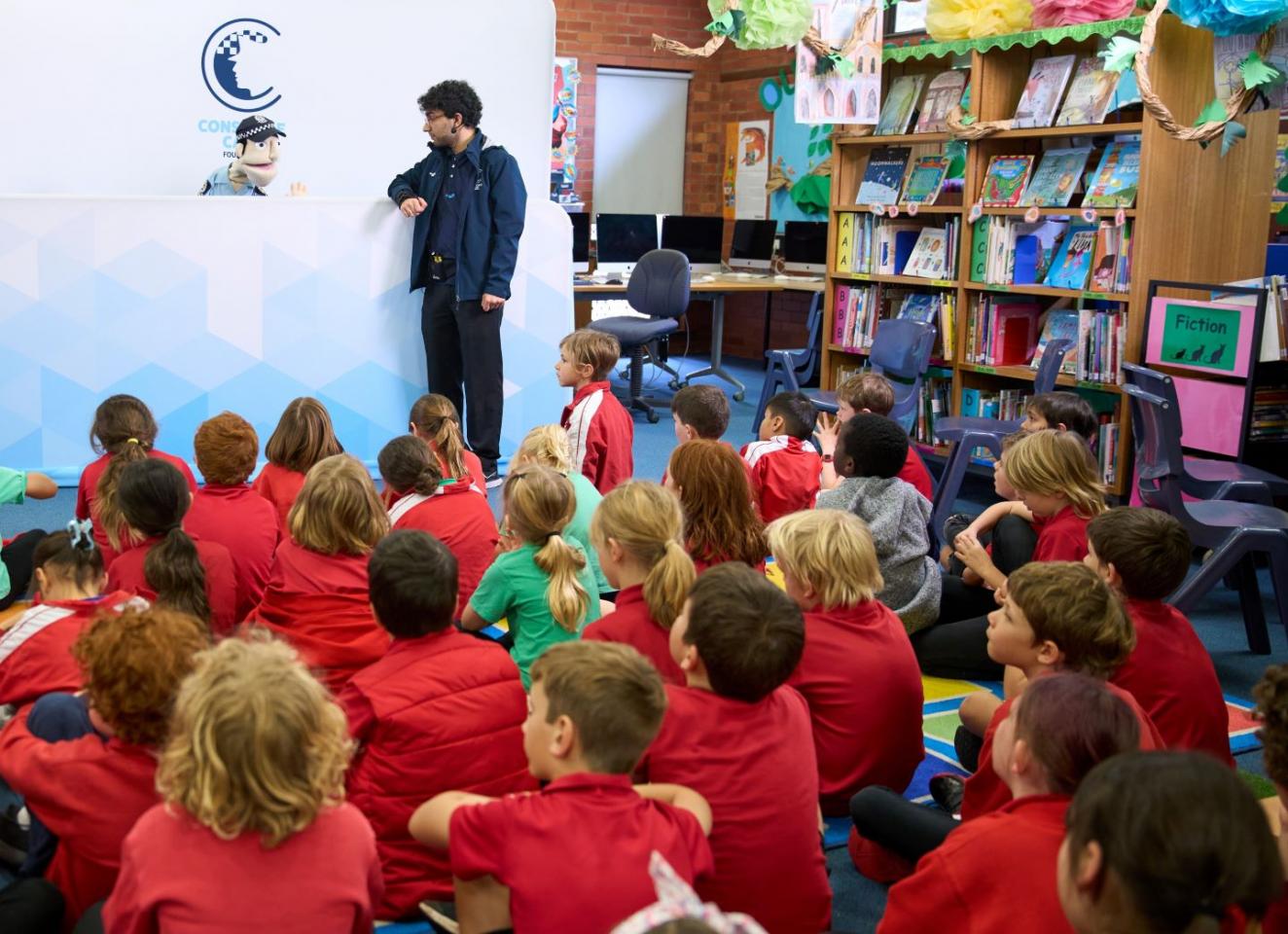What began as a kids colouring-in competition has evolved into WA’s leading force in safety education for children and young people, offering so much more in 2024.


What began as a kids colouring-in competition has evolved into WA’s leading force in safety education for children and young people, offering so much more in 2024.
Most people who grew up in WA from the early 1990s onwards know Constable Care, but few are aware how much this homegrown icon in harm prevention has evolved over the past few decades.
Established in 1989, the organisation has since branched out from primary schools to high schools with its Youth Choices brand, using interactive theatre and technology to give teenagers tools to tackle common issues such as mental health, substance abuse, online safety, bullying, discrimination and unhealthy relationships.
Constable Care Foundation chief executive Ian Anstee says it’s been important for the long-running not-for-profit to keep up with our rapidly changing world to connect with its expanded audience.
“Constable Care isn’t just a guy who teaches little kids how to cross the road or wear a helmet,” Mr Anstee said. “While we still cover road safety for young children, we’re now addressing a whole range of topics for kindy kids through to late teens. We have this amazing history to build on but our programs are constantly growing and evolving to remain relevant.”
For added relevance, the Youth Choices Rapid Response Theatre program lets teenagers choose their own topic. When a deeper focus is required — particularly for at-risk youth or young people living in remote communities — intensive theatre and film-making workshops explore issues for an extended period. This culminates in a hard-hitting community performance or screening, followed by an in-depth discussion moderated by highly-trained facilitators.
“Engagement is so important. While it’s easy to draw in the little ones with puppet shows, we’ve also been able to effectively engage trickier older audiences by using interactive forum theatre and cutting-edge technology such as virtual and augmented reality,” Mr Anstee said. “The discussions that take place during Youth Choices intensives create a ripple effect of positive social change throughout the whole community.”

Constable Care has a long history of travelling to remote and regional areas, with a quarter of its services delivered outside the Perth metro area. The Foundation is constantly reworking its evidence-based and research-backed programs, with cyber-safety and consent education becoming increasingly important. Primary school shows also teach protective behaviours, what to do in an emergency and how to handle bullying.
The Foundation also boasts a Safety School in Maylands that has hosted close to 45,000 WA children since opening seven years ago. The only one of its kind in WA, the popular primary school excursion destination gives children the experience of negotiating real-life pedestrian, bike and passenger hazards. Technology enhances learning with CCF’s augmented reality safety education app, Arility.
Further afield, award-winning City After Dark tours take young people through Northbridge and the City to learn how to stay safe on a night out. Plus, Lost Child Services reunite children with caregivers at major events. More recently, CCF trialled a ground-breaking Ethics Program in WA primary schools with positive results.
Celebrated history
Created as a police officer superhero character for children to look up to, Constable Care began in NSW in 1986 and was brought to WA three years later by Sergeant Ross Pengilly.
Originally the program ran as a safety colouring-in competition in primary schools. Bike safety and stranger danger were the initial focus, but the emphasis soon moved to overall safety. The beloved puppet shows were introduced at the Royal Show, then shopping centres and schools. Constable Care was an instant hit. While the program failed to take off in NSW, in WA it stood the test of time.
“The acceptance of the concept in schools and the community was brilliant,” Sgt Pengilly said. “Although it’s hard to define what makes a safer place, I’m sure it has had a lasting positive influence on kids; many of whom are now grown up.”
Since then, more than 3 million WA children and young people have been reached through theatre-in-education shows.












